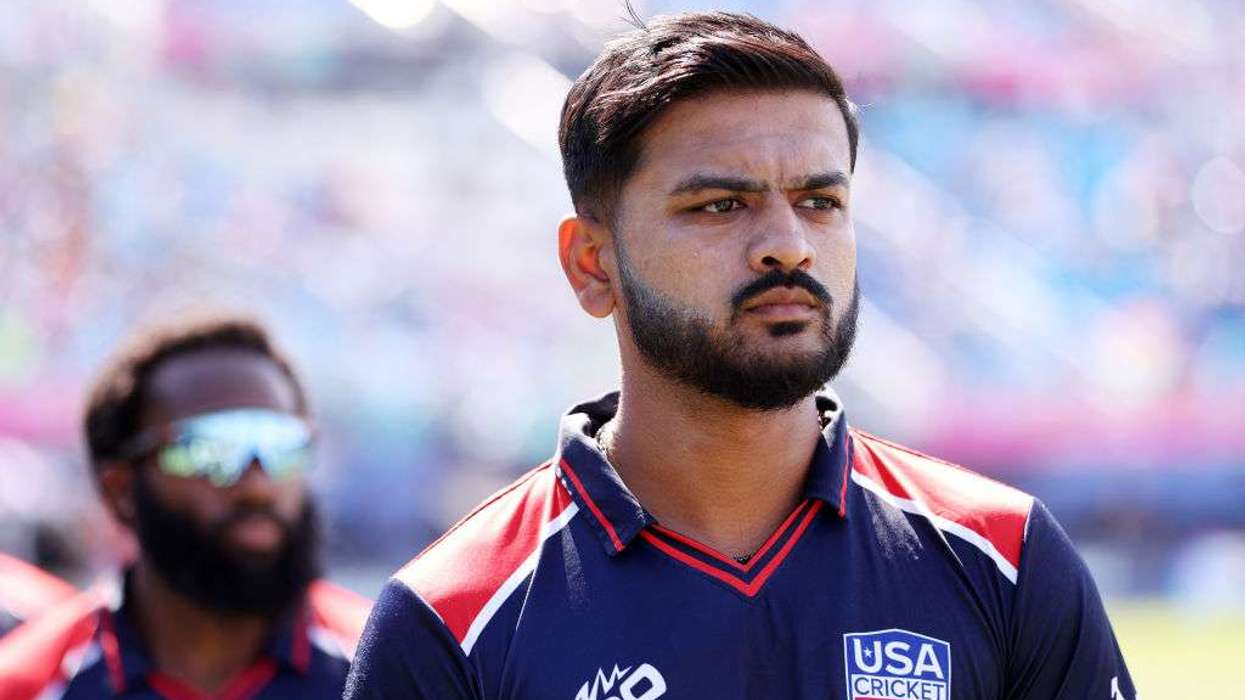AMAR VIRDI, who is part of England’s 30-member training group for the Test series against West Indies, strongly believes a lot of cricketing talent among minority communities in the country goes untapped.
Interacting with the media from a bio-secure bubble at the Ageas Bowl, the Surrey off-spinner said he hoped to make history as the third Sikh to play for England, after Monty Panesar and Ravi Bopara.
"I definitely want to be playing in the first Test… I want to be in the squad," said Virdi, who has claimed 69 wickets from 23 first class matches.
"I'm very proud of myself that I've got to this stage."
Virdi's selection in England's 30-member training group comes amid debate on the lack of diversity in English cricket.
Elaborating on factors that hamper progress of players from minority backgrounds, he explained that that it could be "very daunting" for some of them to enter major country clubs.
"I started at Indian Gymkhana Cricket Club [in Osterley], which is a majority-Asian club, and I found it daunting moving to Sunbury which I did at about 12 years old," Virdi said.
"But it was the best move for my cricket, because it's important to play at a standard where it's recognised and you've got ex-pros at the club… and you've got a lot of support."
Lack of role models was another issue, hinted Virdi, adding that he was lucky to grow up watching Monty Panesar play.
"Growing up, I watched Graeme Swann and Monty bowling and that was very inspirational to me," he said.
"Obviously with Monty… because he looks very similar to me, especially being from the community that I am.
"We're in a minority in a lot of industries so when you do see someone progressing and doing well in that particular field that you're in, it really motivates you, and shows that you can do it if they're doing it as well."
Virdi observed that many children from minority communities do not get sufficient opportunities and exposure.
"It's changing now, but a maybe a lot of kids from minorities don't go to private schools," he noted. "Maybe they're first or second generation here, maybe they might not be able to afford those opportunities.
"If you're at a private school, you're getting cricket there on a weekly basis or a few times a week, but a state school… my school didn't even play cricket."
The attacking bowler expressed gratitude for his parents’ "commitment", stressing that lack of familial support often discouraged budding talent among minority groups.
"I'm really lucky because my parents were really supportive," said Virdi.
"A lot of people's parents are busy making ends meet, and they don't have time necessarily to take their kids to practice, but I'm so thankful to my mum and dad that they took time to support me, driving me up and down the country. Without that, I wouldn't be here."
Virdi also highlighted the urgent need for “more education” about cricketing setups among minority groups.
"A lot of people I speak to don't even know how to start,” he said. "There's so much talent, from so many different communities, it definitely needs to be tapped into."
Mindsets among the minority communities, too, needed to change, emphasised Virdi.
"Growing up a lot of people's parents support India, for example, so you grow up supporting India or wherever you're from or where your family background is," he said.
"Even from a young age I've always supported England, and it's important to have that mindset firstly."



